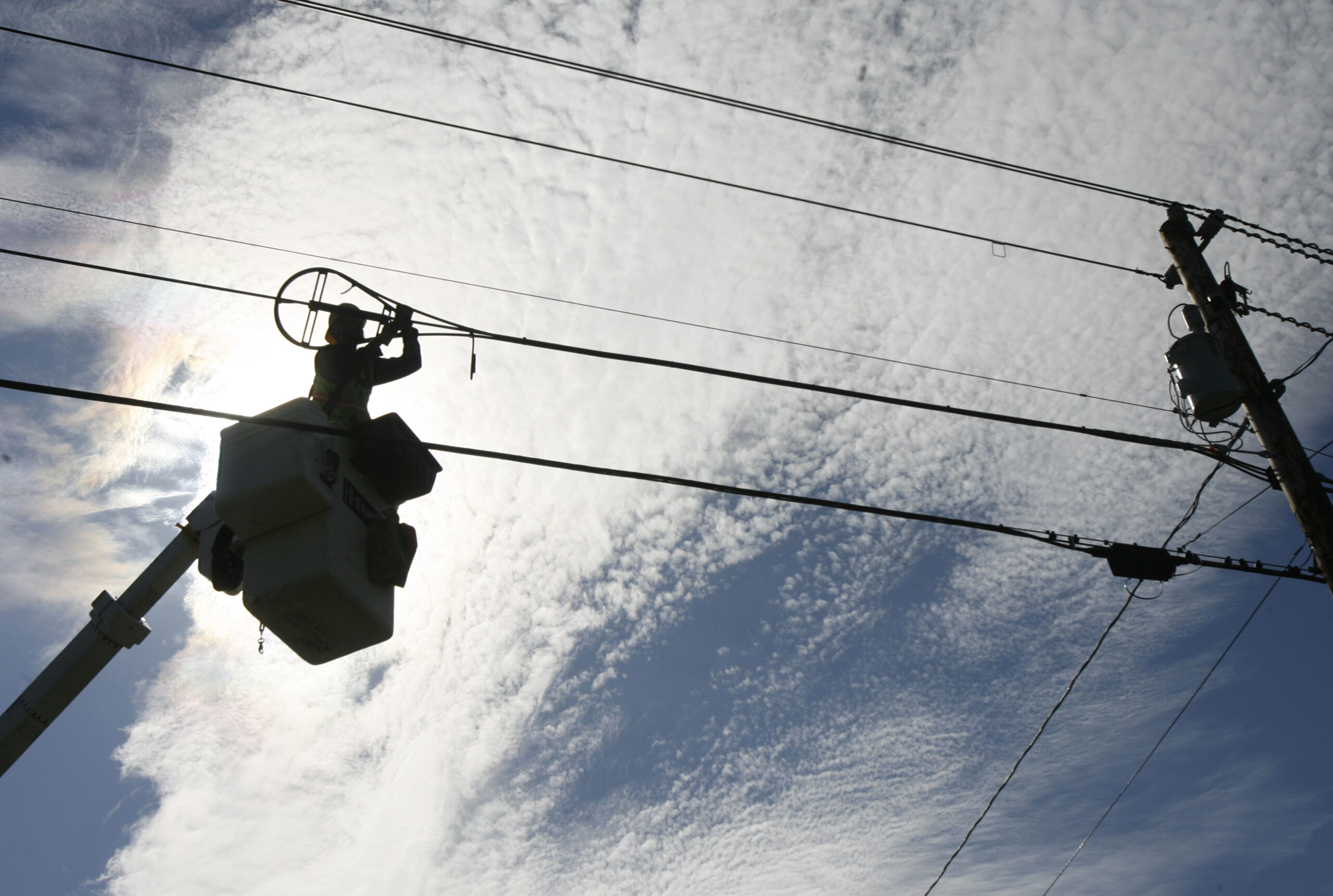Ga. Will Need To Ease Regulations, Provide Cash To Expand Rural Broadband

With the vote to repeal net neutrality, internet service providers have said they’d be willing to invest in rural areas, but it’s not clear companies will invest without public dollars.
Toby Talbot / Associated Press
Georgia lawmakers said they want to expand access to the Internet.
Internet service providers have said with the repeal of net neutrality, they’re more inclined to invest in rural areas, but it’s not clear companies will invest without public dollars.
Ware County
The first thing Carlos Nelson, a commissioner in South Georgia’s Ware County, mentioned when he picks up is the poor connection.
“I will be heading through some rural areas, where we need some good cellphone signals, that’s for sure, and I may end up losing you,” Nelson said.
Nelson’s said some areas of the county have no internet access or no stable internet.
“They have to try to use their hotspot on their phone in order to get the Internet so their kids can do homework,” Nelson said. “Anytime we can get a little improvement on broadband is a help. It would help us grow if we had better access.”
Expanding Access
Georgia lawmakers have prioritized expanding internet access through the Rural Development Council, said state Rep. Ed Setzler, R – Acworth.
“There’s a recognition that a funding source of some kind needs to be identified to bring people who live in rural areas up to a baseline level of access,” Setzler said.
However, he doesn’t know yet where the state will find the money to invest in broadband.
Internet companies have said they might invest in less populated areas with the repeal of net neutrality and specifically Title II regulations.
Stephen Lifton is with the Georgia Cable Association, which represents providers like Comcast.
“Companies are going to feel more encouraged to invest,” Lifton said. “They’ll have a greater sense of certainty that regulations won’t eat up their investment.”
Companies Expand
“It’s sort of like a trickle-down-theory. I’m not sure if I really buy into that,” said Phil Ventimiglia, chief innovation officer at Georgia State University. “To go into a rural area, right, it’s all about the financials.”
Ventimiglia said companies will not lay down cable in sparsely populated areas without cash incentives.
“They want to go into the areas that are heavily saturated with people because it helps defray their costs when they run the cabling and equipment,” said state Rep. Paulette Rakestraw, R – Powder Springs. “In the more rural areas it’s costly to run it because of the layout of land, [amount of] land between houses and population centers. It’s just not cost-effective for them to run broadband to those rural areas.”
Setzler said it’s not clear when companies might start doing work and the state recognizes it’s costly for companies to invest in rural areas.
“That’s why the Rural Development Council’s looking at this and saying we can’t wait, we need to close the gap in years, not decades,” Setzler said.
Short of straight-up cash investment, lawmakers are looking to sweeten the deal.
“It’s not just about funding, part of the rural development council’s position is that we want to facilitate the rapid expansion and streamline the processing of right of way approvals via small communities,” said state Rep. Jonathan Wallace, D – Watkinsville.
They’re exploring sales tax exemptions and less regulation for Internet companies that invest in rural Georgia.








